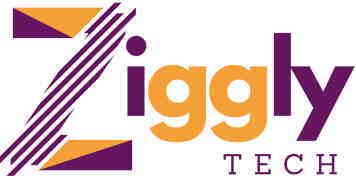If you enjoy playing online bingo, you’re certainly not alone. Reports suggest that as many as 4 million people play online bingo in the UK today, and that number spans across all different age demographics. It’s a little known fact that millennials made up 17% of bingo players in 2016, with the numbers steadily growing to reach 21% in 2017 and 25% and 2018.
Though it may come as a surprise to many that a quarter of online bingo players at Barbados Bingo are millennials, the same upward trend is noticeable in the 35-44 age group that has increased from 21% in 2015 to 26% in 2016, keeping a steady position in 2017.
Bingo is popular, entertaining, and addictive. But that’s just it. Can it lead to gambling addiction, and is bingo linked to the worrying gambling statistics we see in the UK?
Defining bingo in UK law
Although it may seem surreal, it’s important to accurately define just what bingo is in UK law. This affects how it is categorised and monitored.
Historically, bingo is essentially a lottery played as a game. A good starting point to understand the characteristics of bingo is its description in the 1978 Royal Commission Report:
‘Bingo is a lottery played as a game. Each player receives for his stake a set of numbers which he has not chosen. These are marked off against numbers selected at random and announced by a caller, and the winner is the person who can first substantiate a claim to have marked off all those, or a particular section of those, in the set he has been given.’
In the Gambling Commission Advice Note from 2014, section 3, clause 3.2, the 2005 Gambling Act is cited as distinguishing bingo from casino gaming. This is crucial as it provides for separate casino and bingo operating licences and, in section 68 clause 3.0, excludes bingo from the ‘other games of chance’ that a casino operating licence authorises its holder to provide.
In layman’s terms, bingo is officially separate from casino gambling, and as a result, is not monitored in the same way. But can something as harmless as bingo lead to addiction?
A problem to be addressed
Most people will have heard of addiction, and will have associated it with drugs or gambling. Gambling addiction is defined when the person has difficulty limiting time and money on gambling sites that leads to adverse consequences. These consequences could be as severe as bankruptcy.
Basically, gambling addiction is a problem we suffer from closer to home than most people like to imagine. It’s estimated that more than two million people in the UK have a gambling addiction or are at risk of becoming addicted.
As bingo is classified in UK law as separate from casino gambling, it often isn’t given as much gravitas as it deserves. More energy and investments are ploughed into other types of gambling addiction.
However, addiction to bingo is still detrimental to someone’s health and wellbeing. You’re still paying money to play a game like osrs slayer 1-99 which is full of risk. If this spirals out of control and you start suffering financial ruin, the consequences can play havoc in the person’s life, as well as adversely affecting their loved ones.

0 comments